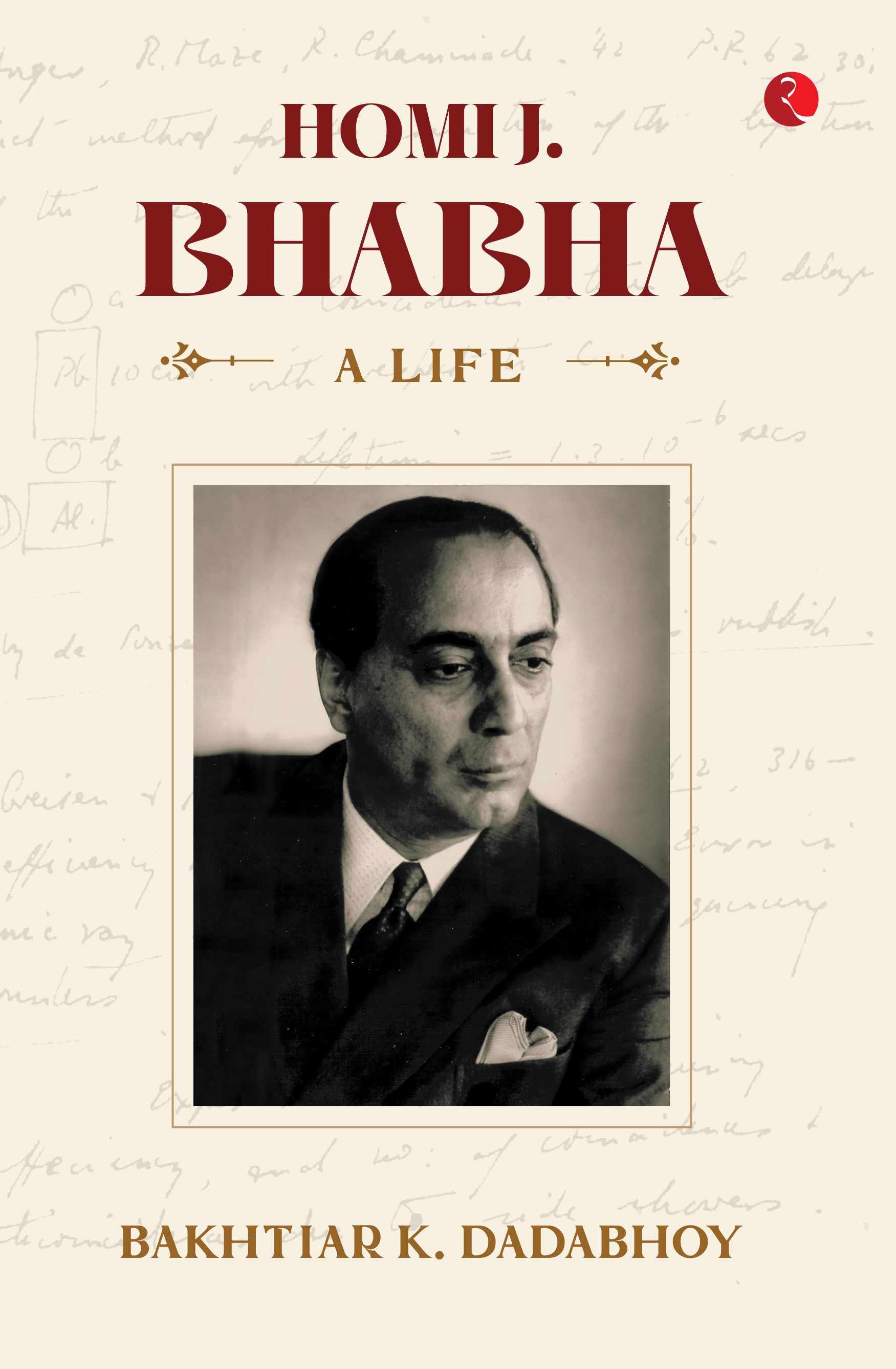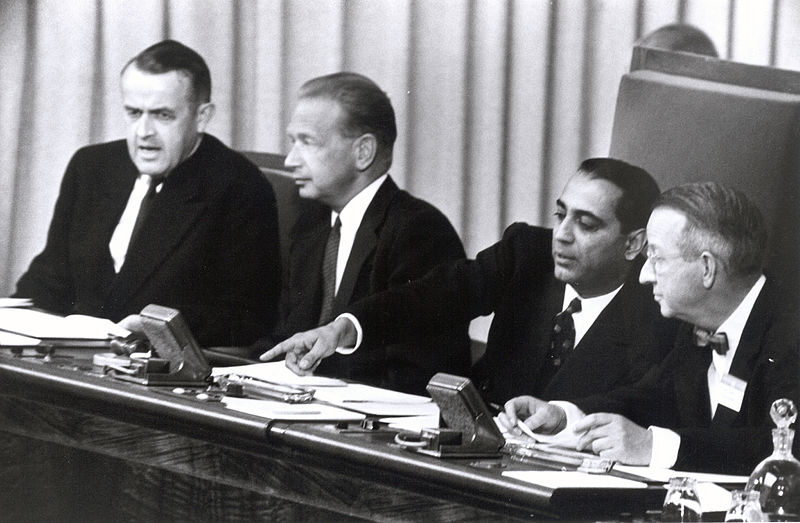Excerpt from Bakhtiar K. Dadabhoy’s new work that is also a story of Indian science and the foundation of India’s atomic energy programme
Homi J. Bhabha: A Life
By Bakhtiar K. Dadabhoy
Rupa, 776 pages, Rs 995
‘Homi J. Bhabha: A Life’ is the first full-fledged biography of the theoretical physicist who founded India’s nuclear programme. A Renaissance man, Bhabha was also a lover of music and an accomplished painter. A scientist and aesthete who was equally at home in the world of science and the arts, he was both a visionary and a doer—a man of thought as well as a man of action. A great deal is known about his astonishing intellect, but less about his human side. This biography combines both aspects of him, presenting a more complete picture of the man.
Bhabha’s life story also provides a good vehicle for telling the story of Indian science and the foundations of India’s atomic energy programme. This biography is as much an early history of the Tata Institute of Fundamental Research, Mumbai, and India’s atomic energy programme as it is an account of Bhabha’s life and work.
Bakhtiar K. Dadabhoy, the author who has also penned biographies of JRD Tata and Zubin Mehta, among other books, presents a meticulously researched narration in rich, human, political and scientific detail. This biography tells the story of one of twentieth-century India’s greatest scientists and the country’s greatest-ever science administrator.
Here is an excerpt from the book:
THE GENEVA CONFERENCE AND AFTER
BHABHA AS PRESIDENT
Bhabha delivered his presidential address on 8 August 1955, the opening day of the conference. His talk, delivered with ceremonious diction but without pomposity, was titled ‘The Need for a New Power Source’. He declared that the purpose of the conference was to discuss the peaceful use of atomic energy and to exchange scientific and technical knowledge on the subject.
Bhabha divided his broad view of human history into three great epochs, each with its distinctive energy source. The first and longest epoch, covering almost the entire period of 250,000 years, had been characterized by the use of muscle power, both animal and human. The second epoch, which had started 200 years ago, had been marked by the burning of fossil fuels, like coal and oil, and had led to the industrial society of today. The third was going to be the epoch of atomic energy, one which the world had entered after the Second World War. Bhabha believed that electricity from atomic reactors would be all-important in promoting economic development.
This was based on the belief that economic development and energy consumption are directly related. Since energy consumption would ultimately depend on energy supply, a major increase in the supply of electricity would lead to greater economic development. Thus, Bhabha linked energy supply to the development of civilization. In societies that were dependent on the muscle power of slaves, the fruits of civilization could be enjoyed by only a privileged few. With the advent of the Industrial Revolution, a larger number of people in the highly developed countries started enjoying a better standard of living, but the vast majority in underdeveloped countries were no better off.
[…]
Bhabha told his audience that for the full industrialization of the underdeveloped regions and to ensure the continuation of civilization and its further development, atomic energy was not merely an aid, it was an absolute necessity. He went on to say, ‘Atomic weapons lie outside the scope of this conference, but we cannot entirely separate the applications of peace from the applications of war […] A widespread atomic power industry in the world will necessitate an international society in which the major powers have agreed to maintain peace.’
Bhabha then quoted from the Russell–Einstein Manifesto, warning against nuclear war and appealing for peace. On 9 July 1955, Bertrand Russell and Albert Einstein had issued an appeal to humanity, urging that the great peril associated with nuclear weapons be recognized by both governments and the public. The Russell–Einstein Manifesto spoke of the threat of nuclear weapons to the survival of the human species and called for major efforts to contain such dangers. As a consequence of the manifesto, the first Pugwash conference was held in 1957. The origins and goals of this conference came from the manifesto—to highlight the dangers of nuclear weapons, call for their elimination and promote the peaceful resolution of conflicts.
Eight years before the conference, in April 1947, Einstein, as chairman of the Emergency Committee of Atomic Scientists, had written to Bhabha asking for a donation to help educate people about atomic energy and its implications for society. ‘In this lies our only security and our only hope—we believe that an informed citizenry will act for life and not for death.’12 In his reply, Bhabha had promised all help and requested for literature on the subject, which he would help publicize widely. The monetary assistance, Bhabha said, would be a little problematic because of ‘the very stringent dollar restrictions that the Government has been compelled to bring in.’
Bertrand Russell, while recalling the preparations for drafting the manifesto, had hoped that he would have the support of Indian leaders and scientists. His hopes soared when, at the beginning of Nehru’s visit to London in February 1955, Nehru seemed most sympathetic and friendly and invited him to hold the first meeting in India. For some time, it appeared that the Indian government would sponsor what eventually became the Pugwash conferences. New Delhi was chosen to host the first conference and, in June 1956, Russell even dispatched invitations for a conference in January 1957. But, Bhabha was lukewarm with regard to the Pugwash movement and showed little enthusiasm for nuclear disarmament. He was not keen to be associated with the movement, which was believed to be inspired by ‘fellow-travellers’.
When Russell met Bhabha, the former received, as he put it, a ‘cold douche’. Bhabha, he said, had profound doubts about any such manifesto, ‘let alone any such conference as I had in mind for the future [Pugwash].It became evident that I should receive no encouragement from Indian official scientific quarters’. Not a single Indian nuclear scientist signed the Russell–Einstein manifesto. The first Pugwash conference was held in July 1957, at Pugwash, a village in Nova Scotia, Canada, the birthplace of Cyrus Eaton, an industrialist and philanthropist who offered to host and finance the conference. (It is said that the Greek shipping tycoon, Aristotle Onassis, also offered to host it at Monaco but his offer was turned down). However, Nehru, on Russell’s suggestion, set up an official group to study the effects of nuclear explosions.
Before concluding his speech Bhabha said:
This Conference has already broken down many barriers, and we have come to know of the remarkable advances in atomic energy, achieved in several countries of which we were totally ignorant hitherto. If so much has been achieved through the individual and isolated efforts of a few countries, how much more could be achieved by the combined effort of all...We have the unique opportunity of giving our knowledge to others for the common good. I hope this Conference will play its part in helping the progress of mankind towards the ever-widening dawn of the atomic age, with the promise of a life, fuller and happier than anything we can visualise today.
Bhabha made a case for knowledge to be shared more freely and debunked the idea that secrecy could ensure security. ‘Knowledge should be freely available and shared,’ he said. ‘It is unreal to believe that security can be ensured by secrecy.’
[The excerpt reproduced with the permission of the publishers.]
